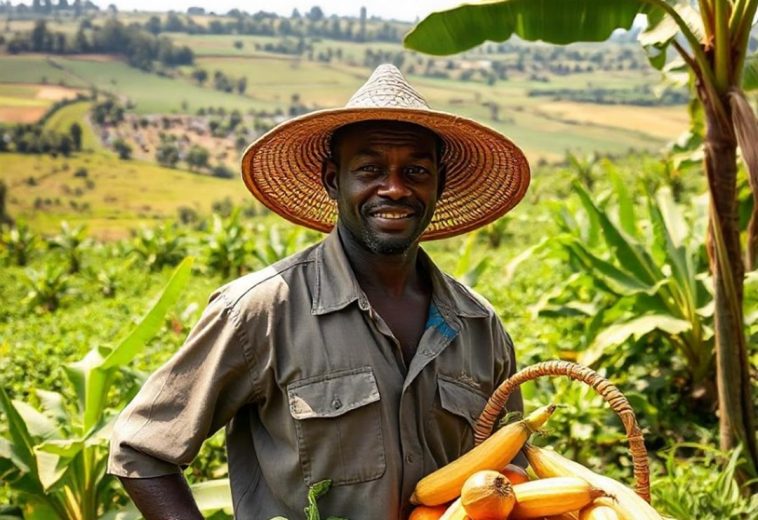Space exploration and aerospace development are no longer exclusive to a handful of global superpowers. Africa, with its unique challenges and immense potential, is charting its path in the global aerospace arena. From launching satellites to exploring space-based solutions for pressing issues on Earth, the continent’s growing involvement is transforming its narrative and demonstrating that the sky is no longer the limit.
The Dawn of Africa’s Aerospace Aspirations
In the past decade, African nations have steadily increased their presence in the global aerospace sector. As of 2023, at least 17 African countries boast active space programmes, with over 50 satellites launched by African entities. These milestones signal a growing commitment to leveraging space technology for socio-economic development.
READ ALSO: Tunisia Hosts Aerospace, Defense Exhibition
South Africa’s National Space Agency (SANSA), Egypt’s Space Agency (EgSA), and Nigeria’s National Space Research and Development Agency (NASRDA) are among the key players driving this transformation. These agencies have led initiatives ranging from satellite launches to collaborations with international space organisations such as NASA and the European Space Agency (ESA).
Satellites as the Eyes in the Sky
Africa’s satellites are more than technological achievements; they are vital tools for addressing the continent’s challenges. Satellite technology is employed for environmental monitoring, agriculture, disaster management, and telecommunications. For example, the African Resource Management Constellation (ARMC), a collaborative project involving Algeria, Kenya, Nigeria, and South Africa, aims to provide detailed satellite imagery to address issues like deforestation, desertification, and urbanisation.
Nigeria’s NigComSat-1R, launched in 2011, continues to play a critical role in improving broadband connectivity across the continent, particularly in rural areas. Similarly, South Africa’s SumbandilaSat has enhanced the country’s agricultural and environmental monitoring capabilities.
Aerospace for Economic Growth
The global space economy is estimated to be worth over $630 billion, and Africa is positioning itself to claim a substantial share. By 2040, the African space industry is projected to generate over $10 billion annually, driven by investments in satellite technology, data services, and aerospace manufacturing.
A report by McKinsey & Company and the World Economic Forum forecasts that the global space economy will grow to $1.8 trillion by 2035, up from $630 billion in 2023. This growth will encompass both “backbone” applications such as satellites, launchers, and services like broadcast television or GPS, as well as “reach” applications where space technology enables businesses across various sectors.
In Ethiopia, the establishment of the Ethiopian Space Science and Technology Institute (ESSTI) has catalysed advancements in satellite technology, including the successful launch of the Ethiopian Remote Sensing Satellite-1 (ETRSS-1) in 2019. This satellite supports the nation’s agriculture, mining, and forestry sectors, demonstrating how space technology can yield economic benefits.
Education and Talent Development
One of Africa’s most significant investments in the aerospace sector is in education and capacity-building. Across the continent, universities and institutions are launching programmes to train the next generation of aerospace engineers, scientists, and technicians.
The African Union’s Pan-African University Institute for Space Sciences (PAUISS) in South Africa exemplifies this effort, offering advanced degrees in space science and technology. Additionally, private initiatives like Ghana’s All Nations University contributed to the continent’s first satellite, GhanaSat-1, launched in 2017. This pioneering project underscores the importance of education in fostering innovation and self-reliance in aerospace development.
Orbiting Together: The Power of Collaboration
Africa’s growing aerospace ambitions are fuelled by strategic partnerships with global players. Countries such as China, India, and Russia have provided technical and financial support to African space programmes. For example, China’s Belt and Road Space Information Corridor has facilitated satellite launches for several African nations, while India’s ISRO has provided training and technology transfer.
Moreover, intra-African collaborations are gaining momentum. The African Space Agency (AfSA), headquartered in Egypt, is set to unify and coordinate the continent’s efforts in space exploration, fostering a shared vision for the future.
Challenges on the Ground
Despite the remarkable progress, Africa’s aerospace ambitions face significant challenges. Limited funding, infrastructure deficits, and brain drain remain persistent issues. In 2023, African countries allocated USD 425.01 million to fund space activities, representing a 14.96% and 18.77% decrease compared to the revised budgets of USD 499.76 million in 2022 and USD 523.3 million in 2021, respectively.
Political instability in certain regions also disrupts long-term planning and the execution of space programmes. Overcoming these challenges will require sustained investment, regional cooperation, and policy reforms to create an enabling environment for innovation.
The Road Ahead
The future of Africa’s aerospace industry is bright. As the continent continues to embrace space technology, the potential for economic growth, innovation, and global influence is immense. Initiatives like the Square Kilometre Array (SKA), the world’s largest radio telescope project, spanning South Africa and eight other African countries, underscore the continent’s ambition to lead in cutting-edge space science.
As Africa reaches for the stars, it inspires a new generation of dreamers and innovators. With the right investments and collaborations, the continent is well on its way to becoming a formidable player in the global aerospace industry.




